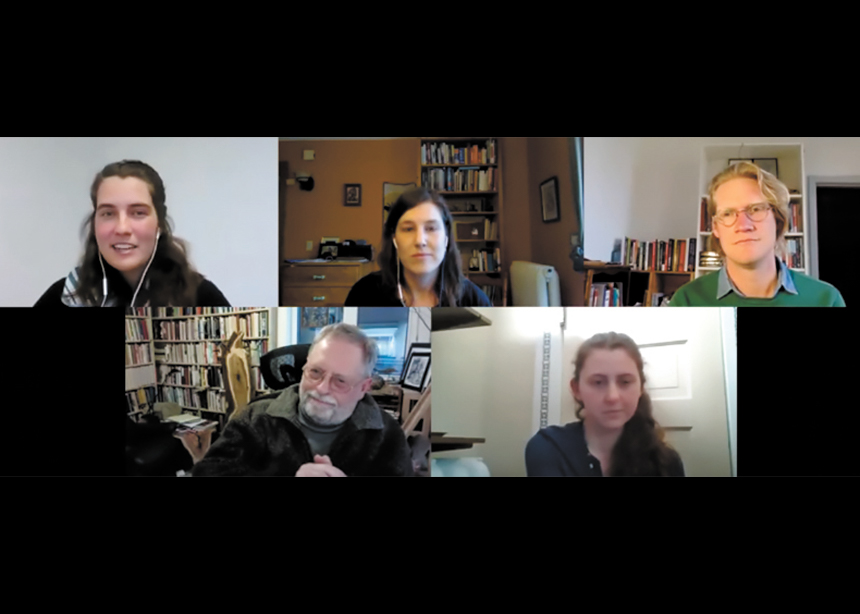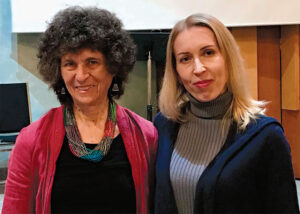A million plant and animal species are nearing extinction, the global climate is dramatically shifting and sea levels are rising—the earth is in crisis and many people are overwhelmed with ecological grief.
On April 28, A Rocha Canada hosted “Ecological grief and exploring hope,” a virtual panel discussion in partnership with Canadian Mennonite University (CMU). Speakers shared how they have experienced ecological grief, how they practise lament and where they find hope.
The evening’s panelists were Marta Bunnett Wiebe, a peace and advocacy coordinator with Mennonite Central Committee Manitoba; Bob Haverluck, an artist, theologian and storyteller; Josiah Neufeld, a journalist and fiction writer; and Zoe Matties, program manager for A Rocha Manitoba.
Kari Miller, A Rocha Manitoba’s environmental education coordinator, moderated the conversation that stemmed from an independent study on ecological grief that she did for her CMU degree in thanatology, the study of death and dying.
“I have been fascinated by the question of grief and pain, and how exactly this relates to our humanity,” Miller said, adding that an important part of this grief is mourning for the diverse life forms lost to climate change and the alarming direction the world is headed in.
So people must lament, she said, explaining that “lament is a profoundly hopeful act, one that creates space for grief to be acknowledged while seeing the potential for a better future.”
Bunnett Wiebe added, “Lament is unique from despair, in that lament is the practice of trusting God with our grief, whereas despair is a loss of trust. . . Despair is a lack of imagination for other possibilities. Lament, on the other hand, does not give up, even in spite of it all.”
Lament moves people toward action, according to Haverluck, who recounted the story of Jesus approaching Jerusalem on Palm Sunday and weeping for the city. Jesus didn’t stop there but continued on to the Temple to confront the source of his sorrow, she said, noting, “He turns the grief into grievance.”
The panellists emphasized that the act of lament should take place in community; people need to share their grief so they feel less alone. It is also communal action, with local organizations and at protests, that gives them hope. Other activities that can help bring hope included people moving their bodies, spending time outside, growing plants, making and sharing food, prayer, silent retreats and good conversations.
Miller said she hopes this forum will challenge people to find new ways of acknowledging grief and enable them to move towards hope and action. Like compost, “new life can indeed come from death,” she said.
Do you have a story idea about Mennonites in Manitoba? Send it to Nicolien Klassen-Wiebe at mb@canadianmennonite.org.








Leave a Reply
You must be logged in to post a comment.